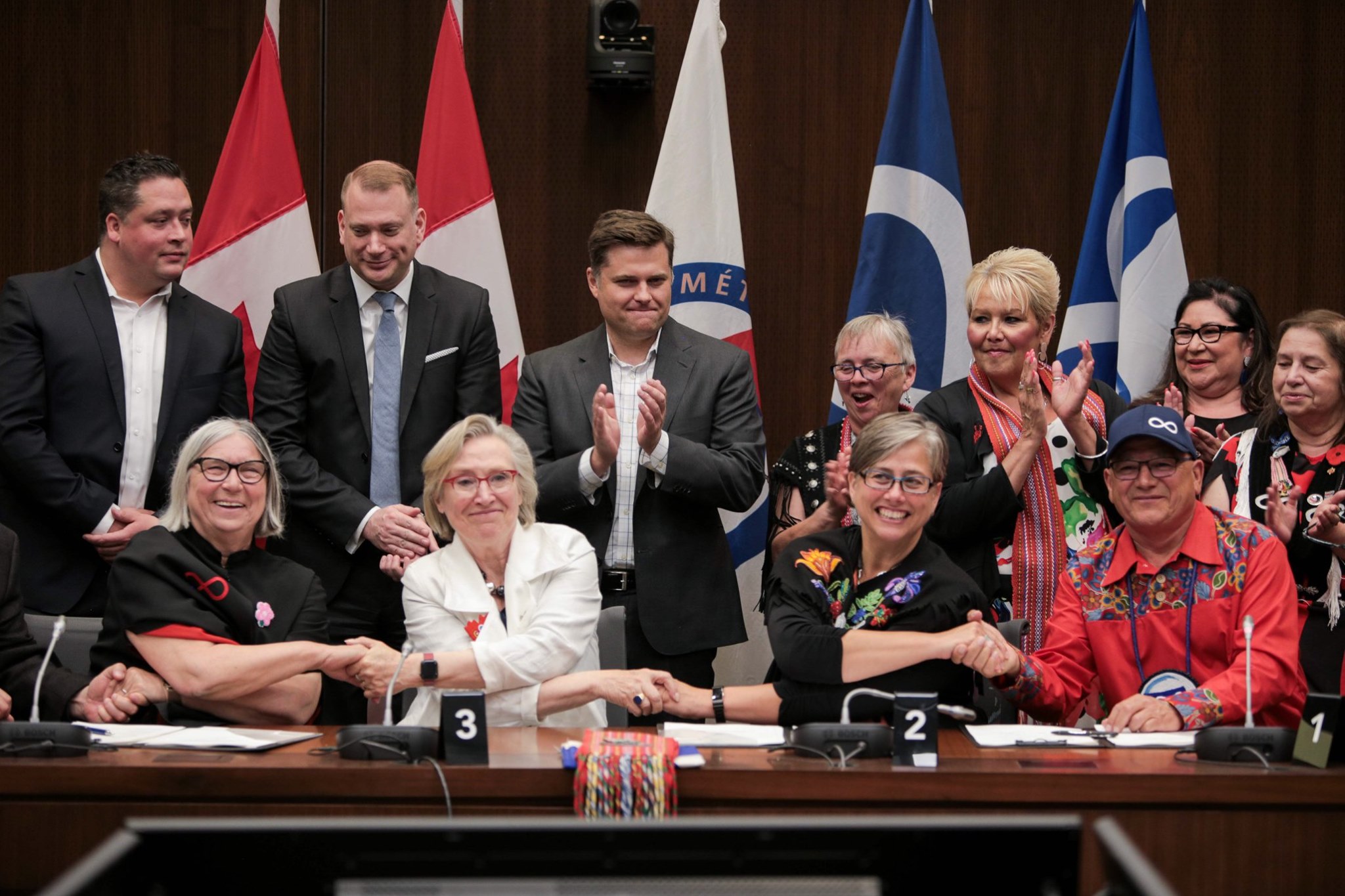 Photograph: Canadian Minister Carolyn Bennett (Facebook)
Photograph: Canadian Minister Carolyn Bennett (Facebook)
The Canadian federal government signed self-government agreements with the Metis nations of Alberta, Ontario and Saskatchewan last month, in a historic deal that may lead to reparations and resolving ongoing land claims.
The Métis Nation describe themselves as an Indigenous people and a nation that are neither European nor First Nations, with their own language, culture, and identity. The landmark agreement will now allow them to create their own constitution and formulate their own policies in a range of areas, from land to healthcare and housing.
“We face systemic disadvantages rooted in colonialism, racism, and indifference,” said Audrey Poitras, president of the Métis Nation of Alberta in an opinion piece earlier this month.
“No non-Métis government has cared enough or been committed enough to correct these problems. Only a Métis government will be able or willing to respond to our unique needs and ambitions as Métis Nation citizens.”
“By signing these historic agreements today, our government is taking a fundamental step to advance reconciliation and transform our relationships with the Métis Nation of Alberta, the Métis Nation of Ontario and the Métis Nation-Saskatchewan,” Carolyn Bennett, the federal Minister of Crown-Indigenous Relations, said in a statement. “We are committed to advancing self-determination as we strengthen our government-to-government relationships.”
Poitras concluded by saying,
"The agreement signed by Canada and the MNA is meant to put an end to generations of denial and neglect. This federal government has had the courage to do what no federal government before it would: acknowledge our right to take charge of ourselves. Now, we can move forward—together — in the spirit of recognition and respect."
See the full text of her opinion piece here.
Also see more from the Guardian here, CTV here and the Globe and Mail here.
